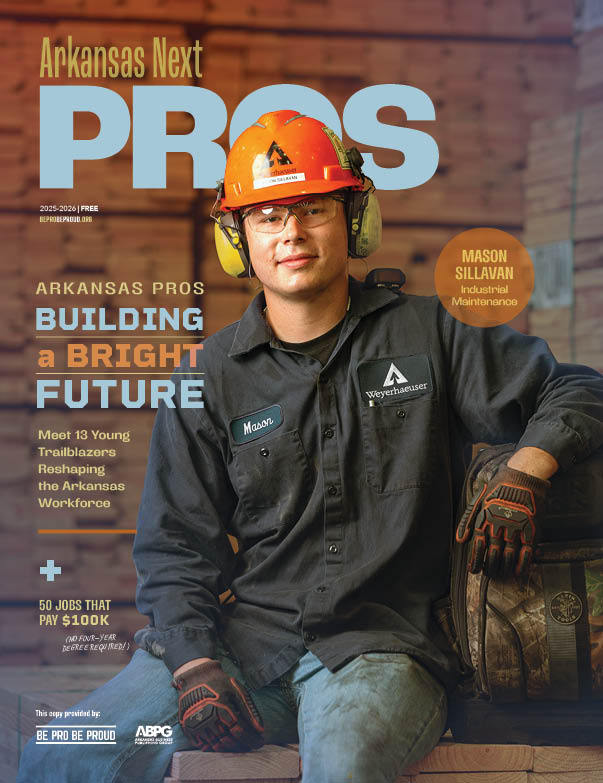What’s It Really Like to Be a Nurse?
By Katelyn Allen on Friday, September 25, 2020

Dulce Armas always wanted a job where she could help people. “Growing up, I always liked watching medical shows on TV,” says Dulce, a Registered Nurse I at Baptist Health Medical Center in Little Rock. “Working in health care lets me help others while also feeding my interest in medicine.” Knowing she can make a small difference in people’s lives keeps her coming back to work every day.
To launch her career in nursing, Dulce equipped herself with an associate degree in nursing from the University of Arkansas at Little Rock and a bachelor’s degree in nursing from Capella University. “Nursing school is hard, but it can also be really fun,” Dulce says. “Interacting with my patients during [clinicals] in nursing school really showed me that this was what I was meant to do.”
Now a seasoned pro, Dulce shares her experience with others to motivate and set the record straight. “There is so much to the job that people don’t realize! So much of what you see doctors doing on medical dramas is actually done by a nurse in real life.” And, like the TV shows, she says you will experience true life-and-death moments. “One of the most emotional moments was being in the delivery room when a baby was born,” Dulce says. “Another was getting to watch open heart surgery and stand inches away from a beating heart.”
At its core, nursing is about the patients.
“I monitor their condition and intervene as appropriate. I am the eyes, ears, and hands of the physician — oftentimes, they will make decisions based on my assessment. I also advocate for my patients and act as their support person — especially now that we don’t allow visitors due to COVID-19.”
And patient care is a team effort. “It was surprising to me when I started out. You have the nurses, physicians, patient care techs, unit secretaries, food service, environmental services, respiratory therapy, radiology, speech pathology, dieticians, laboratory specialists, and so on,” Dulce says. “All of them are absolutely essential to taking care of our patients.”
As she looks to the future, Dulce plans to pursue a graduate degree in nursing with her sights set on work as a nurse practitioner or teaching nursing students. “If you think you’ve learned everything you need to know [in this field], and that you don’t need to learn anything else, that’s a problem. Never be afraid to admit when you don’t know something.”
“So much of what you see
doctors doing on medical
dramas is actually done by
a nurse in real life.”
– Dulce
WHAT YOU MUST KNOW
If you’re considering nursing…
“Volunteer at a hospital or shadow a nurse. There's really no way to know what it's like until you get out there and experience it.”
Best part of being a nurse…
“Getting to see a really sick patient get well enough to go home. There's really nothing better.”
Intense moments…
“Although it's also one of the worst things, getting to participate in a code blue situation is very exciting, especially when it ends with a good outcome.”
Biggest surprise…
“It's nothing like ‘Grey's Anatomy!'”
How long does it take to become a…
Registered Nurse (RN)
2-4 years
Earn an associate or bachelor's degree in nursing, obtain a RN license, and pass the National Council Licensure Exam (NCLEX)
Nurse Anesthesiologist (CRNA)
Up to 7 years
Earn a bachelor's degree in nursing, obtain a RN license, work at least one year as an acute care nurse, and complete 2-3 years of a nurse anesthetist (CRNA) program
Nurse Practitioner (NP)
6 years
Undergrad and graduate program like that of CRNAs, and add 2-3 years if you want to earn a Doctor of Nursing Practice degree
$61,330
Average RN salary in Arkansas
High Demand in Health Care: Home Health Aides & Nurses

Jordan Chaney is a Hospice Registered Nurse at North Arkansas Regional Medical Center (NARMC) Hospice of the Hills in Harrison, a nonprofit organization that provides special sensitivity support and care for the final phase of terminal illness. “I’ve always found it personally rewarding to care for others and to see others be well cared for,” Jordan says. “If every day you can help just one person feel an ounce better, how can that NOT be a passion?”
Jordan grew up watching her dad become a nurse. From him, she learned about sympathy and sacrifice. She decided to get an associate degree in nursing from North Arkansas College. “When I graduated nursing school, my dad reminded me to ‘never forget the power of touch’ and that is so true.” Jordan also grew up visiting her great-grandmother in nursing homes, and she says it felt like a second home — those visits taught her the importance of quality care and compassion. “I loved my rotations at nursing homes because it made me realize how easily forgotten the older generation could become, and I saw that even just a couple minutes spent with them made the world of difference in their day.”
Now, “When I walk into my patient’s home…I know I’m right where I’m supposed to be,” Jordan says. “We are so much more than just medicine. We’re the emotional, spiritual, barrier-breaking, psychosocial support to our patients and families from the beginning to the end.”
Levels of Nursing
The jobs, the training and the pay
Certified Nursing Assistant (CNA)
Entry-level nursing; CNA's provide the most basic care and must be supervised by an RN
Education: Can earn required credentials with a vocational education class, which may only require about 72 hours of study
Average annual pay: $25,950
Home Health Aide/Nurse
Provides care and companionship to the elderly, chronically ill, disabled or otherwise impaired.
Education: Must earn a certification (takes about 75 course hours)
Average annual pay: $22,520
Licensed Practical Nurse (LPN)
Trained to administer medical and basic needs that CNA's are not; usually supervised by an RN
Education: Must complete a one-year accredited practical nursing program at a technical or community college
Average annual pay: $40,760
Registered Nurse (RN)
Can administer medications, perform diagnostic tests and treat patients; can supervise other nurses
Education: Must earn an associate or bachelor's degree in nursing (2-4 years), then obtain a RN license and pass the National Council Licensure Exam (NCLEX)
Average annual pay: $61,330
Nurse Practitioner (NP)
Similar medical abilities to physicians; the highest level of treatment power in the nursing field. They examine patients, provide diagnoses and prescribe medication and treatment
Education: After becoming an RN (up to 4 years), must earn a master's degree and pass APRN certification (2 more years)
Average annual pay: $105,840
Nurse Anesthetists (CRNA)
Provide anesthetics to patients in different settings, including many types surgery and procedures. At many rural hospitals, CRNAs are the sole anesthesia providers
Education: Earn a bachelor's degree in nursing, obtain a RN license, work at least 1 year as an acute care nurse, and complete up to 3 years of a CRNA program
Average annual pay: $182,960
Sources: bls.gov (average annual pay in Arkansas, 2020), healthcarepathway.com, registerednursing.org















